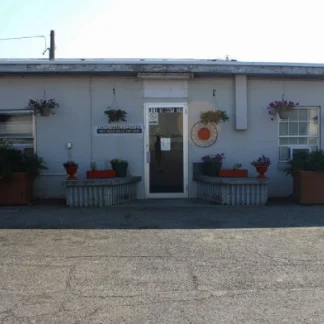Idaho Health and Wellness
Idaho Health and Wellness is a public rehab located in Burley, Idaho. Idaho Heal...
Oats Family Center is a non-profit rehab located in Heyburn, ID. Oats Family Center specializes in the treatment of mental health and substance abuse problems.
Contact us for more information: (208) 679-2273

Connect with Oats Family Center by calling their admissions team directly.
(208) 679-2273 Website Get DirectionsResearch clearly demonstrates that recovery is far more successful and sustainable when loved ones like family members participate in rehab and substance abuse treatment. Genetic factors may be at play when it comes to drug and alcohol addiction, as well as mental health issues. Family dynamics often play a critical role in addiction triggers, and if properly educated, family members can be a strong source of support when it comes to rehabilitation.
Group therapy is any therapeutic work that happens in a group (not one-on-one). There are a number of different group therapy modalities, including support groups, experiential therapy, psycho-education, and more. Group therapy involves treatment as well as processing interaction between group members.
Life skills trainings involve all the skills a person must have in order to function successfully in the world. These include time management, career guidance, money management, and effective communication. Truly successful addiction recovery is based on the ability to not only live substance-free, but to thrive. Life skills teaches the practical necessities of functioning in society, which sets clients up for success in life, and therefore sobriety.
Group therapy is any therapeutic work that happens in a group (not one-on-one). There are a number of different group therapy modalities, including support groups, experiential therapy, psycho-education, and more. Group therapy involves treatment as well as processing interaction between group members.
Life skills trainings involve all the skills a person must have in order to function successfully in the world. These include time management, career guidance, money management, and effective communication. Truly successful addiction recovery is based on the ability to not only live substance-free, but to thrive. Life skills teaches the practical necessities of functioning in society, which sets clients up for success in life, and therefore sobriety.
Life skills trainings involve all the skills a person must have in order to function successfully in the world. These include time management, career guidance, money management, and effective communication. Truly successful addiction recovery is based on the ability to not only live substance-free, but to thrive. Life skills teaches the practical necessities of functioning in society, which sets clients up for success in life, and therefore sobriety.
Idaho Health and Wellness is a public rehab located in Burley, Idaho. Idaho Heal...
Renaissance Ranch–Idaho is a faith-based, 12 step-focused drug and alcohol rehab...
Options Counseling is a private rehab located in Burley, Idaho. Options Counseli...
Burley Care Center and Assisted Living is a private rehab located in Burley, Ida...